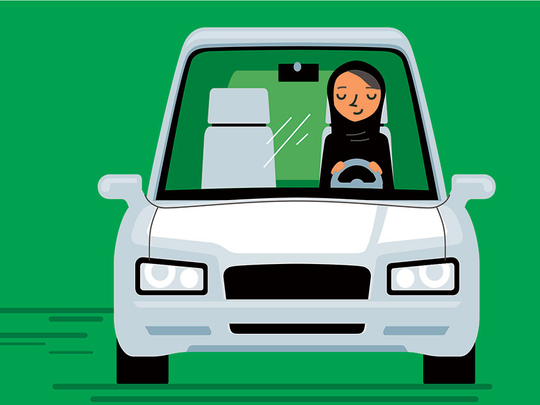
June 24, 2018, will be marked as a significant date in Saudi history. For it is on this date that female residents of the Kingdom of Saudi Arabia will be allowed to drive their vehicles legally.
It has been a long journey to get to this point — one more victory of resistance from hardline fundamentalists, who, for decades, had objected to the notion that women be granted such rights. Women had in the past been a subject of great debate with many clerics favouring their exclusion form a variety of rights, with driving being among the top.
When King Salman Bin Abdul Aziz took over the throne, following the death of King Abdullah Bin Abdul Aziz, he appointed his young son Mohammad to be the Crown Prince. And then, suddenly, decades-long shackles began to fall. A few protests by hardline extremists were quickly dealt with through a swift response.
The Crown Prince wanted to send out a clear message: No longer will his generation be held hostage by the extremist views of fundamentalists whose interpretation of Islam was so restrictive and subjective that it almost condemned the rest of the Muslim world to a rank of heretics. Referring to the days of the past when the kingdom was moving on a path to modernisation and progress, the Crown Prince lamented the abrupt turn of direction that the kingdom had taken thereafter.
The shift was prompted by the attempted takeover of the Grand Mosque in Makkah, Islam’s holiest city, by a group of armed Saudi fundamentalists who believed that the kingdom’s path to success did not lie in the glitter of the oil wealth that the 1970s was ushering in, but rather in a rejection of all things modern and a revert to practices of centuries ago.
This particular event, coupled with the rise of Khomeinism in Iran, brought to a halt any notion that the country was ready to step up and be in stride with the rest of the world. Along with retraction of most modern concepts, a long dormant force suddenly began to muster power: The Saudi religious police, formally known as ‘Commission for the Propagation of Good and Prevention of Evil’.
Devil’s mouthpiece
This force grew stronger and stronger in the 1980s and 1990s and propagated its own narrow view on Islam. Everything the body did not agree with was considered ‘haram’ or a sin and was forbidden. At the beginning, it was the presence of females on TV or radio shows. Then it shifted to the censoring of their faces and forms in magazines and newspapers. The fundamentalists soon shifted their target to the advent of satellite television, claiming the “devil’s mouthpiece” was trying to make its way into Saudi culture. It became a special brand of Islam, different from the rest of the world. In schools and mosques, the prevalent message was that Saudis must retain their practices of centuries ago and reject any attempt to modernise themselves, because that was the tool of the devil.
After that, it was mobile phones, jeans, gymnasiums and even Pokemon, a cartoon character that was drawing a following among the kingdom’s emerging youth. And freedom or equality for women outside their homes bordered on being blasphemous!
With the dawn of the new millennium, debates began to sprout, questioning the restrictive mores on Saudi society and especially on the rights of women. The government began making its position clear. Women were appointed to the Shura Council. They were given the right to vote in municipal elections and they were allowed more liberty in choosing their profession.
The powers of the religious police were swiftly clipped by the Crown Prince who vowed to move the country forward and be abreast with the modern world with his ambitious Vision 2030 plan. Suddenly, society came alive. There was colour and music in the air. There were women in top positions in government agencies; cinemas were resumed in the kingdom — a move long rejected by the fundamentalists. Women could also attend sporting events and venues and finally, the icing on the cake: Women were allowed to drive. The date was set for June 24, 2018.
And so, this date is indeed significant. A date that has directed many of the kingdom’s women to a new road.
Tariq A. Al Maeena is a Saudi socio-political commentator. He lives in Jeddah, Saudi Arabia. Twitter: @talmaeena.










